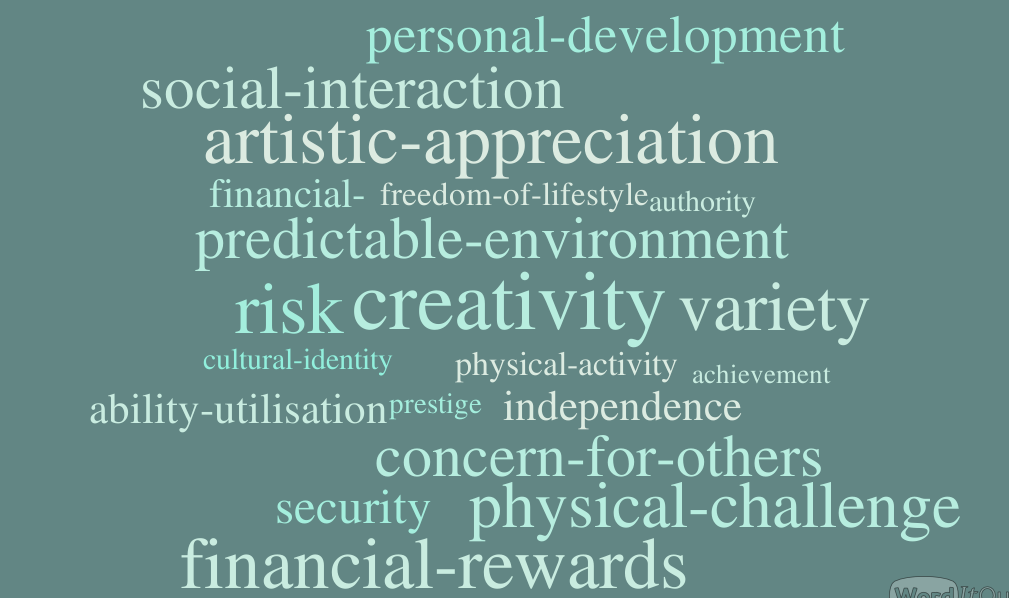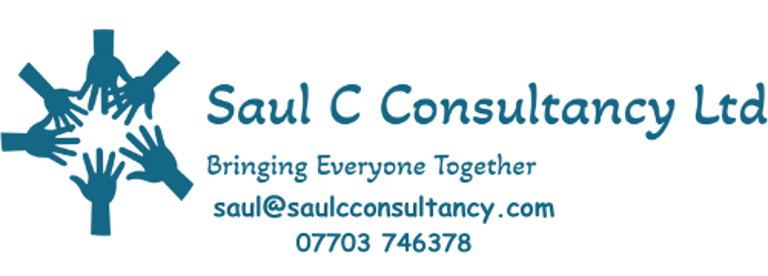The Hidden Power of Values: Building Strong Professional Relationships Through Shared Principles
Identifying and understanding your values and how they can have an affect when your at work
10/10/20244 min read


In the professional world, success is often attributed to skills, knowledge, and hard work. However, there’s an underlying factor that’s just as crucial: shared values. Whether you’re leading a team, collaborating with colleagues, or managing client relationships, values are the invisible framework guiding how you interact and build trust. When values align, professional relationships thrive. When they clash, even the most promising partnerships can fall apart.
In today’s workplace, where collaboration and teamwork are more important than ever, understanding and leveraging personal values can be the key to creating stronger, more productive professional relationships. But how do values shape these relationships, and how can you use them to build a culture of trust and mutual respect?
1. Values Are the Foundation of Professional Trust
Values are the beliefs and principles that guide your actions, decisions, and behaviour. In the workplace, these values manifest in how you approach your work, communicate with others, and handle challenges. They influence everything from how you prioritize tasks to how you manage conflicts.
When your professional values align with those of your colleagues, clients, or leaders, trust is built more quickly. For example, if you value transparency and find yourself working with someone who is equally open and honest, you’re likely to develop a strong working relationship. On the other hand, if you prioritize collaboration but are paired with a colleague who values independence to an extreme, friction is inevitable.
Trust, which is the foundation of any strong professional relationship, comes from knowing that you share common principles. It’s the unspoken bond that assures you’re working towards the same goals with similar ethical standards.
2. Shared Values Create Cohesive Teams
High-performing teams are often built on shared values like variety, personal development, or creativity. When everyone on a team has similar guiding principles, collaboration becomes smoother, and it’s easier to resolve conflicts. For example, a team that values variety might thrive in a fast-paced, dynamic environment where they’re constantly working on new and exciting projects. On the other hand, a team that values predictable environments will prefer structured processes and clear expectations.
Leaders who understand the importance of value alignment can cultivate stronger teams by promoting a clear set of shared principles. A leader who values concern for others might create a workplace culture where collaboration and mutual respect are key, encouraging team members to support each other through challenges. Similarly, leaders who value achievement may focus on setting ambitious goals and celebrating successes, motivating their teams to perform at their best.
3. How to Identify Values in Your Workplace Relationships
To strengthen your professional relationships, start by identifying your own values and observing those of your colleagues. Ask yourself questions like:
Do I value independence or close relationships at work?
Is creativity or financial security more important to me in my role?
How do I approach risk—do I seek physical challenges, or do I prefer stability?
Once you understand your own values, pay attention to how they align with the values of the people around you. For example, if you and a colleague both value freedom of lifestyle, you might find that you work well together when given flexibility in how and when to complete your tasks. On the other hand, if you value authority while a team member prioritizes personal development, you may need to adjust your leadership style to accommodate their desire for growth.
4. Strengthening Workplace Relationships Through Values
If you want to strengthen your professional relationships, aligning your values with others is a great place to start. Here are some strategies for fostering deeper connections through shared values:
Openly communicate values: Whether you value social interaction, creativity, or financial rewards, be upfront about what’s important to you. This transparency allows colleagues and clients to understand where you’re coming from, reducing the risk of misunderstandings.
Respect different values: Not everyone will share the same values, and that’s okay. Acknowledging and respecting differences is key to building adaptable, flexible relationships. If you value prestige but your co-worker values concern for others, find ways to balance ambition with empathy to create a more supportive working dynamic.
Live your values consistently: Whatever your core values—whether it’s business ethics, achievement, or independence—showcase them in your actions. Consistency builds trust, and when others see you acting in line with your values, they’re more likely to trust and respect you.
Find common ground: Even if you and your colleagues have different values, you can often find areas of overlap. For example, someone who values creativity might find common ground with someone who values ability utilization by focusing on innovative ways to solve complex problems together.
5. Navigating Value Clashes in the Workplace
Value clashes are inevitable, but they don’t have to derail your professional relationships. The key is to approach differences with respect and understanding. For instance, someone who values financial rewards might clash with a colleague who values concern for others in a discussion about resource allocation. Rather than focusing on the conflict, aim to find a compromise that honours both values.
In situations where values are fundamentally misaligned, it’s important to decide whether the relationship is sustainable. If your organization places a high value on physical activity and physical challenges while you prioritize artistic appreciation and cultural identity, it may not be the right fit for you in the long term. However, many value differences can be navigated through open communication, flexibility, and compromise.
Conclusion: Building a Values-Driven Workplace Culture
Professional relationships thrive when they’re built on shared values. Whether you value independence, variety, or concern for others, understanding what drives you and the people around you can help you navigate complex work environments and strengthen your connections.
By leading with integrity and aligning your actions with your core values, you’ll not only build stronger individual relationships but also contribute to a workplace culture where trust, respect, and collaboration are at the forefront. Reflect on your own values, communicate them openly, and use them as a guide to creating a more connected, values-driven workplace.
If you would like more information on how you can identify your values or your teams values please do get in touch
www.saulcconsultancy.com
